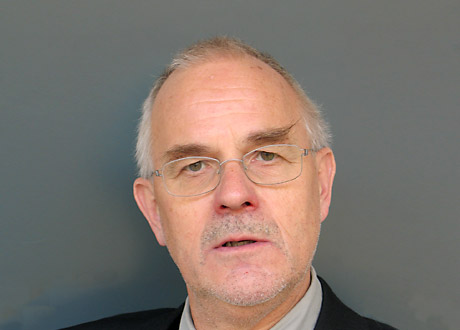Peace through Entrepreneurship: How Businesses Can Be a Force for Unity
Cyprus is politically divided, movement is restricted, and there are two different authorities and sets of laws. How can innovation and entrepreneurship thrive in such a polarized environment - and alternatively, how does that polarization drive innovation?
Running = Innovation (Learning from Personal Record in Berlin Marathon)
Prof. dr. Stefan Stremersch had an epiphany while running his personal record time in the Berlin Marathon. Running is innovation. Running needs innovation, for example when it comes to new solutions for improving endurance running equipment. In this article he talks about big brands such as Nike and Asics and why are they are (un)successful. But innovation also needs running: running teaches you characteristics that are needed to make innovation into a success. Read prof. dr. Stefan Stremersch his view on this below.
An Innovative Complaint: United Breaks Guitars
In 2008, Dave Carroll, a Canadian guitarist and songwriter, flew with United Airlines from Halifax, Nova Scotia to Omaha, Nebraska with a stop at Chicago’s O’Hare airport. During the layover at O’Hare a fellow passenger saw the baggage handlers throwing baggage including Carroll’s precious guitar.
Stand Out from the Competition by Stepping Back
Now that you have successfully developed an innovative new product or service, how do you stimulate market demand? Your customers are overwhelmed with the number of product and service choices that exist in the market today and the volume of marketing messages that bombard them. It is estimated that the average American is exposed to hundreds of advertisements a day and this number is only growing. The only way to stand out from the competition is to step back and establish a clear and credible point of distinction.
International Co-operation: Seek Interference, Not Interaction!
“We welcome your visit, but only if you are prepared to enter meaningful collaboration immediately!” This is the message that the Innovation Unit of the Central Denmark Region distribute to our international colleagues – and it seems to work. A case of breaking the paradigm of co-creating in the public sector.
New Opportunities with Metovation
The indulgent reader of my columns has already met the concepts of mesovation and exovation, and now I’m going to introduce yet another neologism: metovation. Meto- in metovation stems from the prefix meta- where I for easier pronunciation exchanged o for a. Meta is of Greek language origin and stands for the next higher level of abstraction.
In Search of Failure – Designing for Failure?
Who would be searching for failure? Failures just happen, though we always hope to avoid them. A vile thing, a vile word, no? Read more in this weeks' column by Bengt-Arne Vedin, PhD and Professor emeritus in innovation management. And why not joining in helping Bengt-Arne improving the article by joining the discussion?
Exovation – the flip side of innovation
"It is unlikely that you have ever met the concept of exovation before; I invented it in April 2008. Invented? Yes, indeed – even if a Google search obtains a couple hundred hits; but they have nothing to do with the concept as I have defined it. You will see, presently." Read more in this weeks´ column by Bengt-Arne Vedin, PhD and Professor emeritus in innovation management.
In praise of mesovation
All too often, simplifications just lead us astray. Is taking radical as the opposite of incremental or in small steps one such contrived simplification – and one that risks misleading us? This weeks´ column is written by Bengt-Arne Vedin, PhD and Professor emeritus in innovation management..
Opinion: Innovation – Walk the Talk!
Most managers agree that innovation is the Nordic region’s last stronghold for competing in a global economy. Moreover, they are interested and fascinated by the thought of working systematically with innovation in order to gain a breakthrough to create growth and profitability for their organisations. But why then, is there so much talk and so little action, argue Gunnar Storfeldt (CEO) and Orren Shalit (Founder), S I T Scandinavia.
Editorial: From fortress of innovation to eco systems
Leading companies in Europe have abandoned their old and more or less closed systems, and are building new eco systems that include collaboration with academies, suppliers and sometimes even competitors to create more value for their customers. These companies are examples of a successfully managed innovation process.
How do you Deliver Innovation in a Research Environment?
Research at Lund University is world-class. Research is undertaken in areas such as biotechnology, nanotechnology, automatic control, wireless communication, logistics, ecology and cognitive science.







